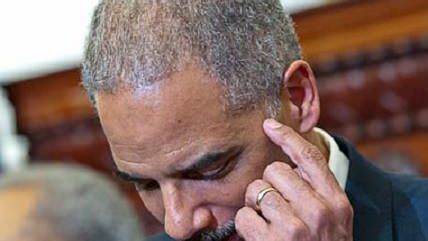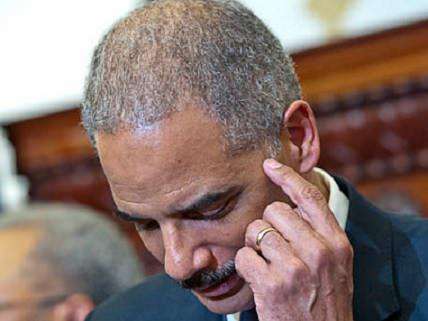What Exactly is Eric Holder Getting Credit For?
Too little, too late


Yesterday, Attorney General Eric Holder announced he was ordering prosecutors to omit the quantity of drugs involved in low-level narcotics cases in an effort to circumvent mandatory minimum laws in those kind of cases, and suggesting to them that they should not prosecute every low-level drug case available to them. As Jacob Sullum noted last night, despite this apparent policy shift President Obama has still not used his clemency power to free inmates he acknowledges are serving out indiscriminately harsh sentences, and Eric Holder did not actually order prosecutors to stop prosecuting low-level drug offenders. The exceptions carved out by the attorney-general—"ties" to gangs or cartels, previous criminal history—leave enough room for a sufficiently driven prosecutor to argue all her cases remain justified. Despite calling it the "so-called" war on drugs, Holder does not question the wisdom of treating drug use as a public safety issue at all in the "Smart on Crime" initiative (pdf). Instead, the Justice Department points to drug courts as a viable alternative—kinder and gentler, maybe, drug courts are still a tool of prohibition. Getting "smart on crime" also doesn't mean laying off medical marijuana dispensaries that are legal in the states they operate.
Politico wonders whether Holder's policy shift signals an end to Democrats' fear of being labeled "soft on crime". The administration's continued reluctance to grant clemency, stop low-level prosecutions wholesale and deal in an adult manner with states that have legalized either just medical marijuana or the recreational kind too suggests the policy shift, while not totally insignificant, isn't driven by any change of heart in the rightness of the criminal justice system and its overall priorities, "so-called" war on drugs and all.


Show Comments (28)